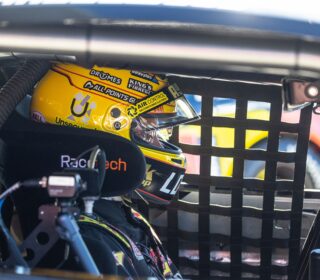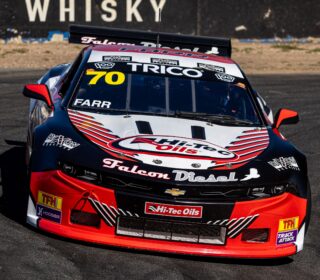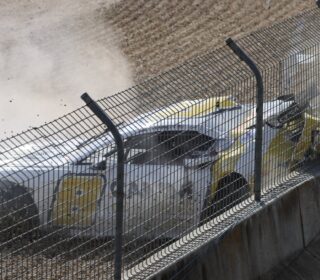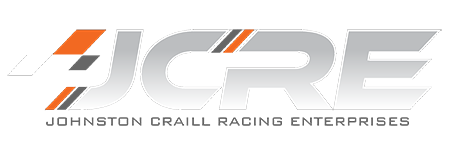RODGERS: ARE THE BRANDS FRIEND OR FOE?
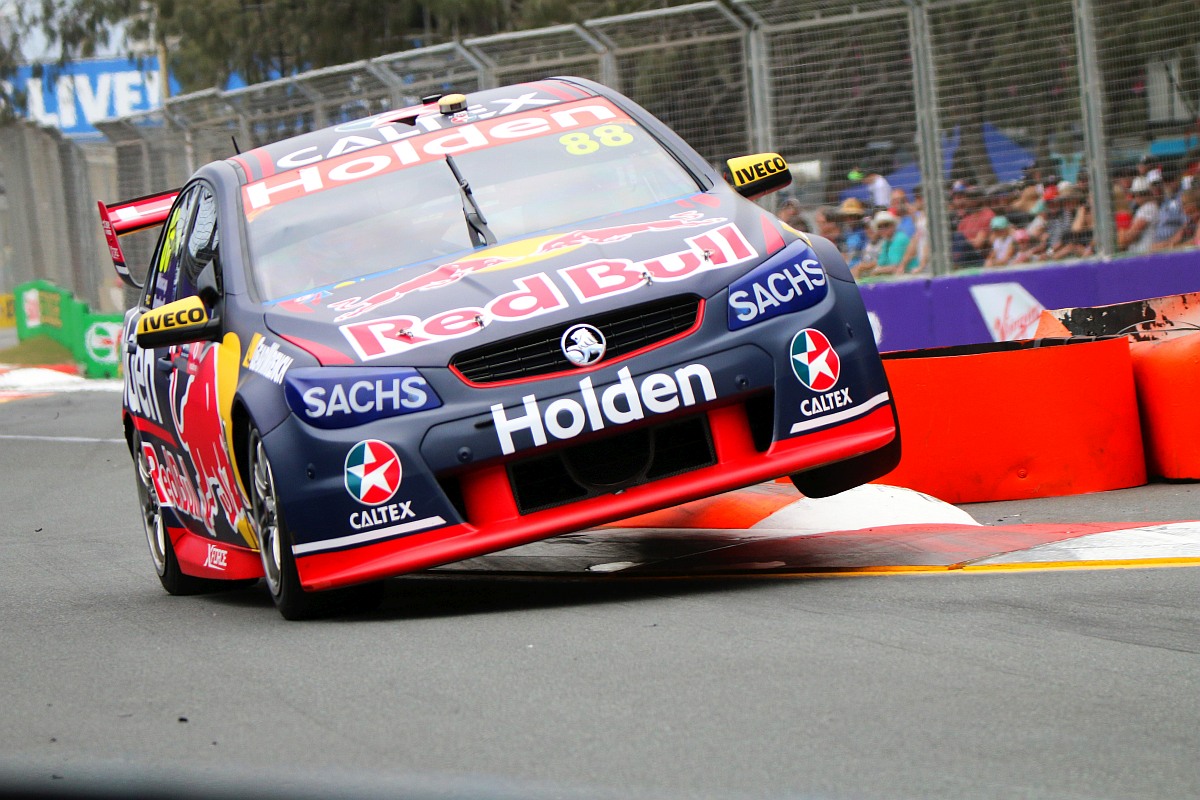
ARE the auto manufacturer’s friends or foes of motorsport?
No matter which category of motorsport captures your interest, invariably the words ‘manufacturer support’ will at some point wind their way into the discussion. From Formula 1 to Truck Racing, manufacturers are coveted and held up as prime examples of the success of the particular category.
But is this the reality?
Automotive manufactures use motorsport primarily for one reason. To support the marketing strategy of the day. Simple. Once that strategy changes either by product development or by board edict, then motorsport is cut as quickly as it was enthusiastically embraced.
2017 has witnessed manufacturer withdrawal from two of the world’s highest profile categories.
Following Audi’s departure from the WEC, Porsche announced their withdrawal only a short time after winning Le Mans for the third time in a row. It leaves a decimated Word Endurance Sports Car Series with only Toyota left in the premier LMP1 category. Their plans for 2018 and beyond are not known.
Dramatic rescheduling of the WEC calendar sees the next stanza of the Championship run over two calendar years. Sports car racing returned to the world stage with vengeance after Audi’s return to Le Mans some years back. Rules were written to entice manufacturers and Toyota, Porsche and a host of key suppliers such as Nissan and GT brands came to play. In less than one month after the big guns said farewell for 2018, the WEC is looking a shadow of itself.
“This realignment of motorsport is derived from the direction set out for the company in Porsche Strategy 2025, which will see Porsche develop a combination of pure GT vehicles and fully electric sports cars, such as the first fully battery-powered Mission E road car,” read a Porsche statement explaining the decision.
So too German counterpart Mercedes Benz announced, not long after the Porsche withdrawal, that it would leave the DTM. “Our years in the DTM will always be held high as a major chapter in the motorsport history of Mercedes,” the brand’s motorsport chief, Toto Wolff, stated.
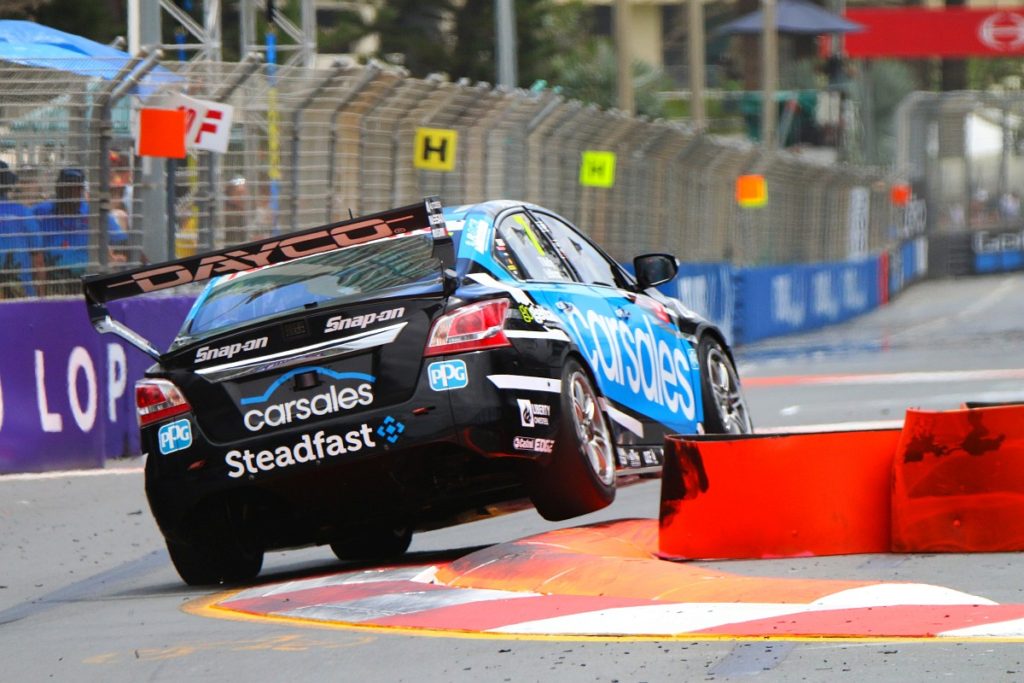
“Although leaving is tough for all of us, we will be doing everything during this season and next to make sure we win as many DTM titles as possible before we go. We owe that to our fans and to ourselves.”
“We look back with pride on the commitment of our teams, drivers, partners and the many people behind the scenes, who so often made the [DTM] series a fascinating platform for our customers and for fans of our brand,” Vice President Marketing Mercedes-Benz Cars Dr Jens Thiemer stated. “It is now time to start on a new path,” he added.
Both brands are heading to the emerging Formula E concept. Why? Because it suits the marketing strategy roll out over the next phase of the company’s life. It is not because they necessarily see Formula E as the most exciting or watched motorsport category in the world. And when the future of electric vehicles regardless of which way it goes is ‘old news’, you can expect them to move onto other pastures.
The rush to Formula E has seen one of the most concentrated periods of manufacturer focus for decades. Audi and recently Nissan have all jumped into to join Renault, Jaguar and the German powerhouses and expect more to follow.
Formula E’s appeal to the manufacturers is obvious but what of the appeal to the public and global audience. It would seem that the disconnect is already showing just a few seasons in. There has been a continuing shakeup of the calendar with inner city races appearing and disappearing in just one season. London a perfect example. Regardless of where Formula E will holds events in the next few years it will be one of the most supported manufacturer series’ in the world.
The other emerging category to benefit from the manufacturers marketing department budgets is TCR. Rapid growth in Europe and Asia sees the three year old formula boast Audi, VW, Honda, Kia, Hyundai, Ford, SEAT and Opel all involved. A clever production car based 2 litre based formula has seen explosive growth and moves to launch in the UK in 2018. Some pundits are predicting it will overtake the BTCC.
However, the road is littered with manufacturers pulling support from motor sport globally. As quickly as they arrive with lavish PR launches so too they disappear via a press release. Formula 1 witnessed dramatic departures of Ford, Toyota and BMW over recent decades. Most poorly handled.
Australia is not immune to this business practice ether. Our Touring Car history is steeped in manufacturer involvement from as far back as the 1960’s.
Holden and Ford have been the mainstay of manufacturer support in Australia but look deeper and you will find Nissan, Toyota, Volvo, Mitsubishi, Porsche, BMW and Chrysler to name but a few. These brands have used Touring Car, Sports Car and Rallying to promote product innovation and image throughout the last forty years. Most have moved out of the sport Down Under.
As our premier Supercars class moves to a new era of post manufacturing cars in Australia very few OEM’s remain. Holden has committed to Supercars with its new Opel sourced ZB Commodore. Toyota has returned with the one make 86 Series, and we await the plans for Nissan with new management and strategies no doubt to play out.
Perhaps the most surprising entry into the Supercars ranks in recent years, Volvo, has pulled out and shipped the cars back to Sweden. They seemed to want no legacy of the exciting ‘blue’ Supercars to remain. Mercedes Benz were never actually involved in Supercars and Ford… well, that may be the subject of a whole new discussion.
So, the drive now for racing teams and categories is to develop series that are not manufacturer dependent.
If they chose to compete then it is a benefit, not a requirement. Motor Sport is at a critical junction and any umbilical cords to manufacturers need to be able to cut and not rely on life support as we move forward.
WORDS: Dale Rodgers
IMAGE: Mark Walker
Dale Rodgers is a Motorsport industry luminary with more years working in and around the sport than he would allow us to publish here. An expert photographer, journalist and marketing / PR guru, Rodgers spent 10 years running Revolution Racegear before assuming the head PR role at DJR Team Penske in 2012. He now heads the marketing of Melbourne Automotive group, Bayford, a 100 years old business with 11 dealerships around Melbourne. Fun Fact, you’ll find many of his images in the famous Australian Motor Racing yearbooks, published through the mid to late 1990s.



